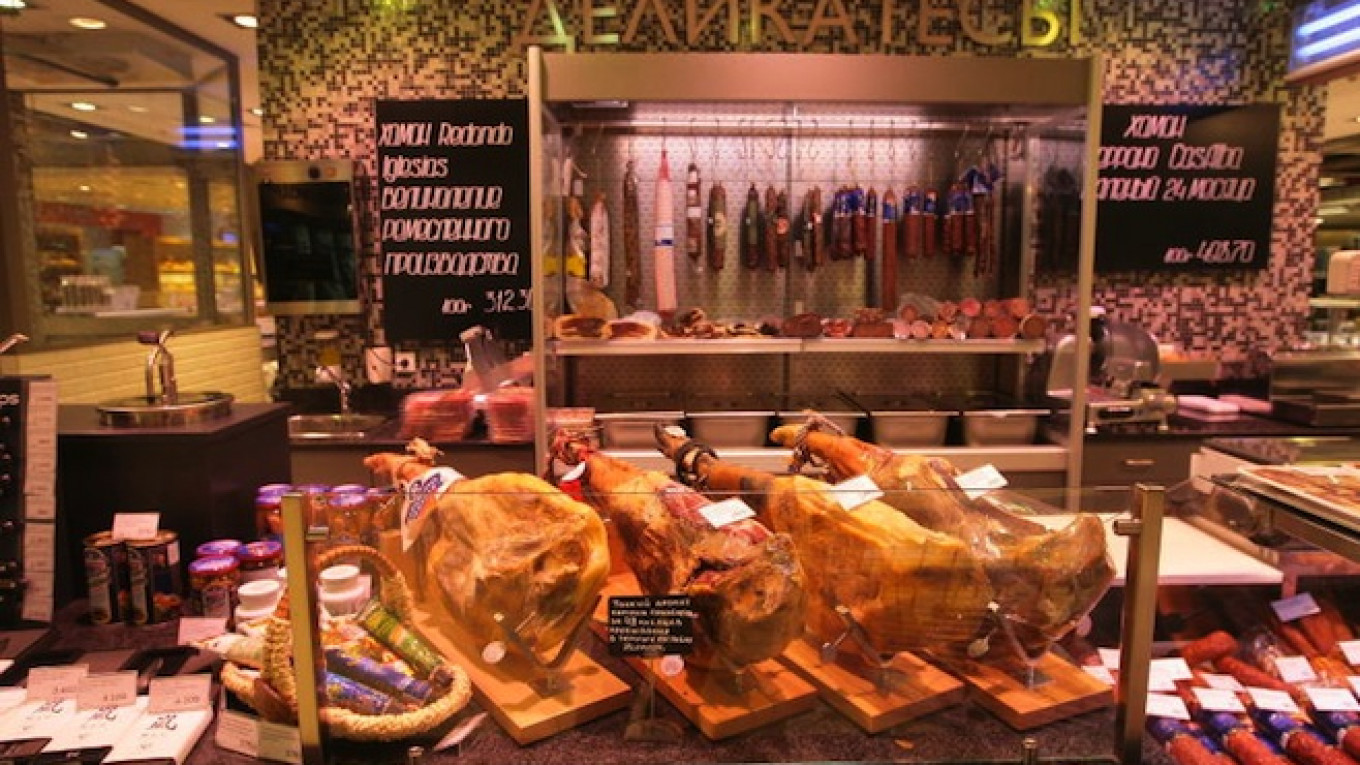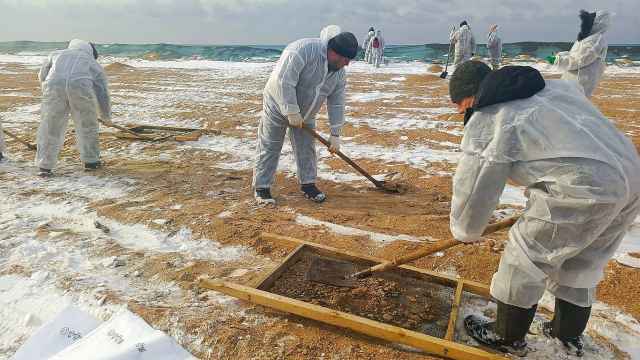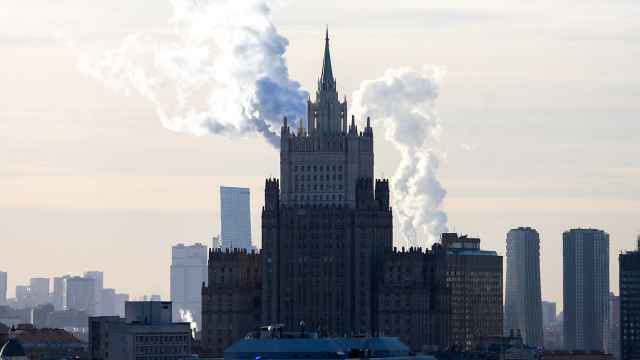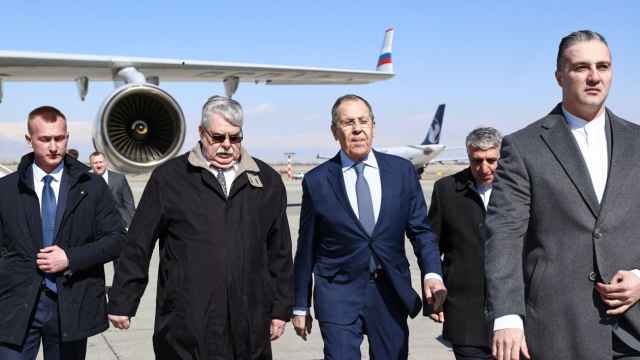Moscow's upscale Azbuka Vkusa supermarket chain has won a case against pro-Kremlin activist Margarita Cherkashina, assistant head of the “Eat Russian” movement that raided supermarkets in search of banned products, the Kommersant newspaper reported Tuesday.
On July 29, the day that President Vladimir Putin signed off on destroying any food banned for import into Russia, Cherkashina and other “Eat Russian” activists raided the Azbuka Vkusa supermarket on Staraya Basmannaya Ulitsa, the report said.
They looked for banned food items and labeled them with stickers reading “Sanctioned Product” above an angry bear and the U.S. flag. After the raid, the movement issued an online statement accusing Azbuka Vkusa of selling products that had been smuggled into the country illegally and were a danger to consumers' health.
It turned out that the food items marked by the activists had been imported legally and were not on the ban list, Kommersant reported. Therefore, a court in the Tula region, where Cherkashina resides, ordered the activist to retract the online statement and reimburse 48,000 rubles ($771) in litigation costs, the report said.
Yevgenia Smorchkova, head of the “Eat Russian” movement, told Kommersant the activists might countersue the company “because the court only heard Azbuka Vkusa's side of the story, but not our movement's.”
She said activists had never had problems during the raids before.
“Usually, when they found banned items, the administration of the store took the items off the shelves and apologized,” she was cited by Kommersant as saying.
In this instance, the managers of Azbuka Vkusa on Staraya Basmannaya Ulitsa refused to show documents proving the products were legal and called the police, Smorchkova said.
Cherkashina did not attend the court hearings. According to Smorchkova, she is currently out of the country.
A Message from The Moscow Times:
Dear readers,
We are facing unprecedented challenges. Russia's Prosecutor General's Office has designated The Moscow Times as an "undesirable" organization, criminalizing our work and putting our staff at risk of prosecution. This follows our earlier unjust labeling as a "foreign agent."
These actions are direct attempts to silence independent journalism in Russia. The authorities claim our work "discredits the decisions of the Russian leadership." We see things differently: we strive to provide accurate, unbiased reporting on Russia.
We, the journalists of The Moscow Times, refuse to be silenced. But to continue our work, we need your help.
Your support, no matter how small, makes a world of difference. If you can, please support us monthly starting from just $2. It's quick to set up, and every contribution makes a significant impact.
By supporting The Moscow Times, you're defending open, independent journalism in the face of repression. Thank you for standing with us.
Remind me later.






